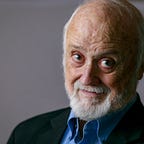Socializing Background Noise as a Superspreading Setup
Loud venues are an important setup for superspreader events. At a Washington State choir rehearsal in March 2020, early in Covid days, one choir member infected 53 of the 60 other choir members during a two-hour-long rehearsal, despite everyone taking the hand-sanitizing and elbow handshake precautions then current. Now we know that touch is not the major way in which the Covid virus spreads; it is aerosols in the exhaled breath whose numbers increase with loud speech or singing.
Now we have an example from a Christmas party at an Oslo restaurant where 60 of the 120 attendees later tested positive for the Omicron variant. The difference between the two examples is that in Oslo, only fully vaccinated employees were invited to the party. Several, however, were just back from a business trip to South Africa. It appears that being vaccinated still allows one to become infected and to spread the virus for days before experiencing symptoms. (The vaccines do appear to prevent cases requiring hospitalization.)
Both settings were loud from singing or socializing. Let me explain why noisy settings with masks off are so hazardous. They set off an amplifying feedback loop that increases viral spread.
In auditory physiology, the “Cocktail Party Effect” describes what happens when additional voices arrive in a room. Even if they are speaking quietly, they add to the background noise experienced by existing conversation partners. A listener concentrating on someone nearby will start having trouble and will ask the speaker to repeat what they said. That person usually raises their voice when repeating. Soon the local conversation is conducted entirely using loud voices that disrupt other groups — and so they raise their volume as well. This cycle escalates the room’s noise level so that a conversing pair must lean close together and shout. This amplifying feedback loop is the perfect setup for spreading airborne infections such as Covid.
Someone speaking in a loud voice emits about four times as many virus particles, and they project microdroplets farther across the room. though masks capture much of it while virus particles are still inside droplets.
And when the range is so short, more virus particles make their way into another’s nose or eyes. Even if that recipient is wearing a mask that stops droplets of mucus, stopping the free virus let loose as evaporation shrinks the droplets is quite another matter. Eye protection is also needed when up close. This shows why masks are so important; they are not about protecting oneself but about protecting others from your viruses in that latent period before you get sick.
Asian-style bows can substitute for hugs and air kisses as well as handshakes. More exhaust air vents in the ceiling can allow semitransparent curtains to be hung around them, creating room for a circle of 5–6 people, discouraging others from joining. Any more people and single-speaker conversations tend to break up into multiple conversations, doubling the noise for others. HVAC fans will need to pull in return flow, not push at input air, in order to move fresh aerosols up to where a face no longer encounters them. One can require masks when speaking; they usually accommodate straws. Keep the finger food on the sidelines.
Noise is why we must also redesign restaurants to be quiet. No more piped-in music. For restaurants, carpeting, wall hangings, and sound-absorbing ceilings are general measures. Booths and alcoves are the main way to enclose sound sources, just as open-floor-plan offices use shoulder-high dividers between workspaces. Hard surfaces such as windows will need semi-transparent curtains.
If people want to socialize while eating or drinking, they now need quiet environments where there is no need to raise one’s voice or to get close to someone to converse. Noisy restaurants need to realize that one superspreader event with major media coverage could ruin their reputation for years, much as if their food poisoned sixty people in one day.
